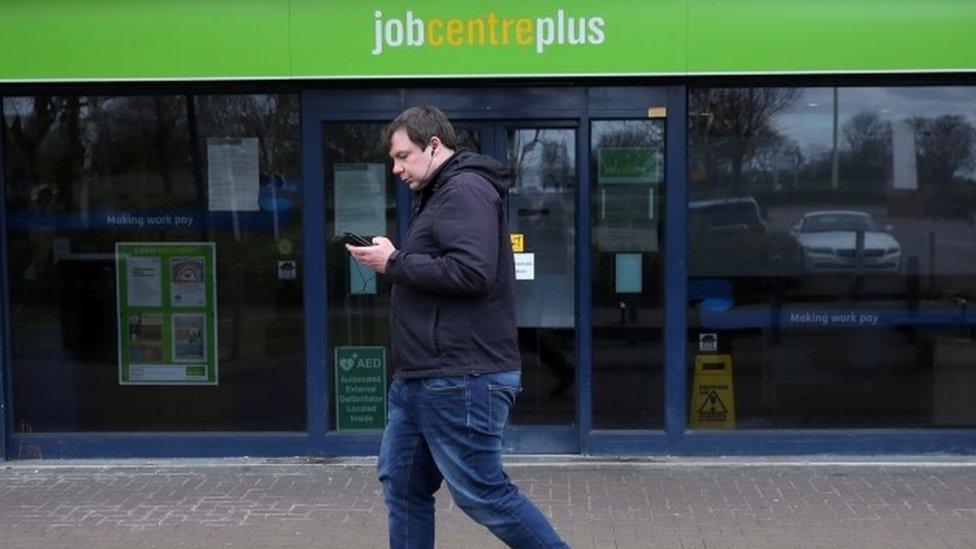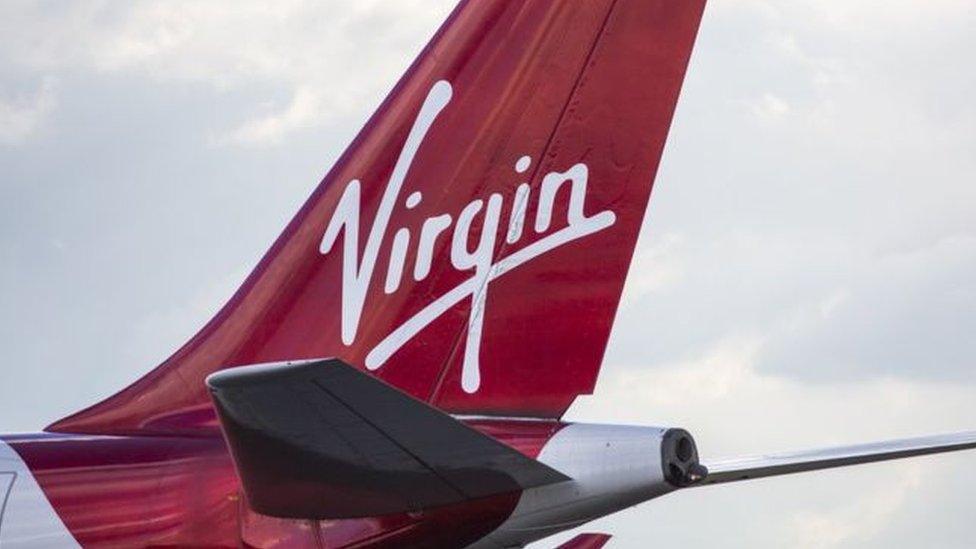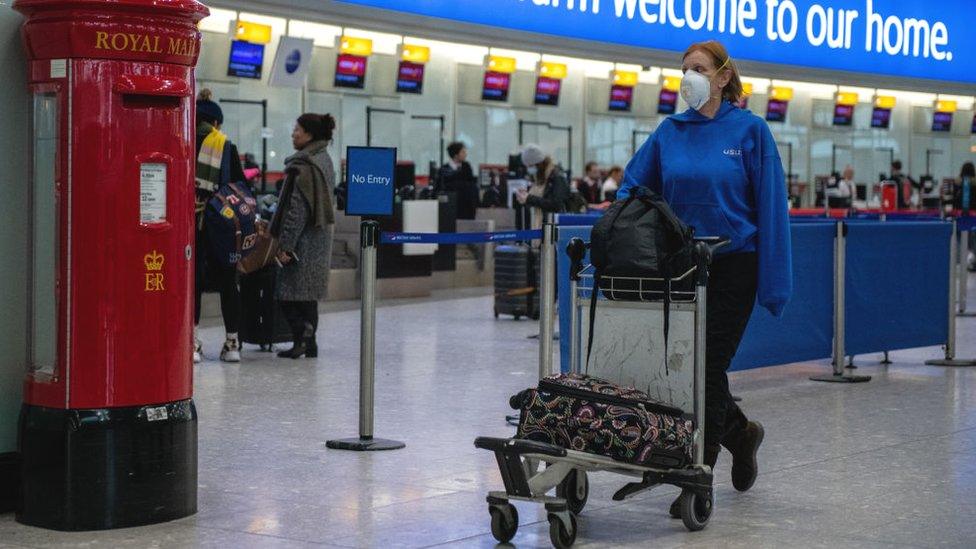Will the government keep paying workers’ wages?
- Published
- comments

The chancellor has the most delicate of balancing acts over the eventual withdrawal of the Job Retention Scheme.
From inception, it was not just a massive piece of government support spending, but, as importantly, a piece of mass applied psychology.
The "furlough" scheme was designed to get into the heads of employers and persuade them to hold off on firing workers from businesses suffering in the pandemic shutdowns.
To park them, to put them on "standby mode" as one cabinet minister put it to me, so they could be switched back on to contribute to a V-shaped bounce back recovery when the pandemic peak passed.
Universal Credit claims surge
That has worked. Universal Credit applications have gone up by 1.8 million, but without the furlough scheme it would have been multiples of that. Crucially, it has kept workers contractually connected to their workplaces.
This helps avoid what economists call "hysteresis" - the scarring effect of unemployment on the economy and public finances over many years. Some 6.3 million jobs are currently being paid for by government, approaching one in four of total UK employments.

Universal Credit applications have soared
But at £8bn so far, it is possible that the expert forecasts of a total cost of £39bn by July, is reached, which does put the cost of the scheme per month at the same order as monthly NHS funding.
So while the government says the spending has been good value for money, it is also, in the chancellor's words not sustainable.
'No cliff edge'
This has led to a suggestion that support will be pulled, and the Treasury clarifying that there will be no "cliff edge". The Treasury did not say that people were "addicted" to the funding - it has only just started to be paid out.
But their dilemma is that they do want to give a broad signal that employers should not become dependent on the scheme - they should expect to get their workforces back working and earning, as safe social distancing arrangements are agreed.
At the same time they want to reassure that the scheme will be fully available until the end of June, and then will be eased out, in some form.
More flexibility?
All options are being discussed on how to phase it out. The amount could be reduced from 80%. Its sectoral application could mirror the phasing in of the reopening of sectors of the economy.
Perhaps the most interesting idea is to learn from the Irish and the Germans on applying the scheme more flexibly, and allowing hours rather than jobs to be furloughed, instantly removing the necessity for employers to require that employees do not work.

Virgin Atlantic has seen passenger numbers slump as countries close borders and enact travel bans
This is being pushed by some business groups, and the opposition Labour Party too. Some Conservative thinkers have even suggested privately, as is the case in Germany, that a scheme such as this, could be made semi-permanent.
The Kurzarbeit system, which is a century-old is credited with saving a million jobs a decade ago, and is paid at 60% of wages, but is untaxed and applies to hours lost rather than requiring a worker to stop employment.
Such a scheme would basically be an expensive form of employment insurance, operating through the private sector rather than the Department for Work and Pensions. This is not in the Treasury's plans, as they seek to reaffirm the support is temporary.
But the behavioural economics of withdrawing support in any form is very delicate.

It was the aviation industry who last week asked for the scheme to be extended into and past July. The loss of thousands of jobs in that sector followed clarification that such a move should not be relied on, for an industry facing a fundamental long-lasting change in trading conditions.
The aviation industry is now saying even after those losses that the scheme needs to be extended until October.
But the message has gone out, in vague terms not to get too reliant on this extraordinary form of funding. But if the impression emerged that the scheme was to be wrapped up too quickly, as one business group leader told me, it would lead to hundreds of thousands of instant job losses.
Many options are being discussed. No decisions have been taken yet. But clarity will be needed quickly.

A SIMPLE GUIDE: How do I protect myself?
AVOIDING CONTACT: The rules on self-isolation and exercise
HOPE AND LOSS: Your coronavirus stories
LOOK-UP TOOL: Check cases in your area
TESTING: Can I get tested for coronavirus?

- Published27 April 2020
- Published21 April 2020
- Published17 April 2020
